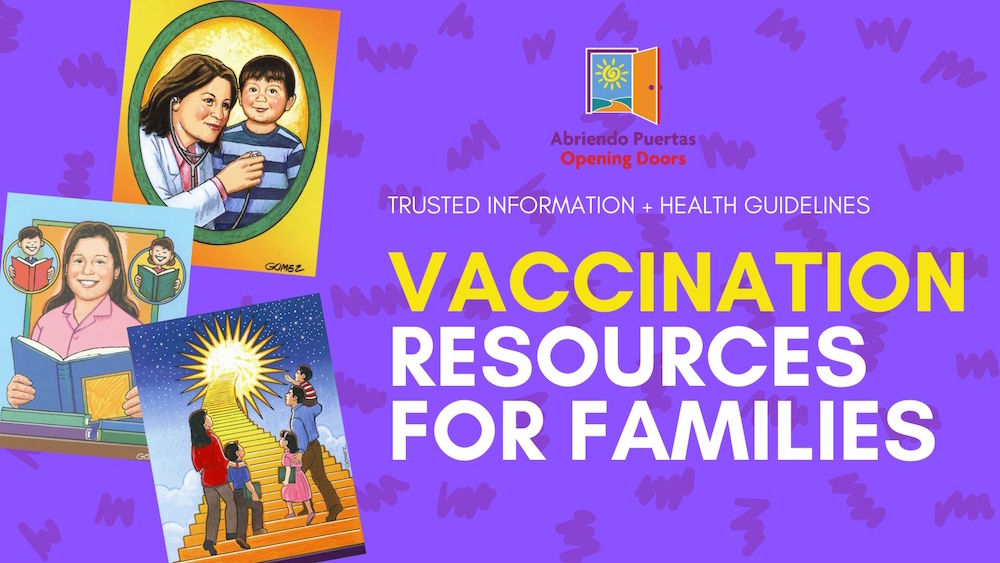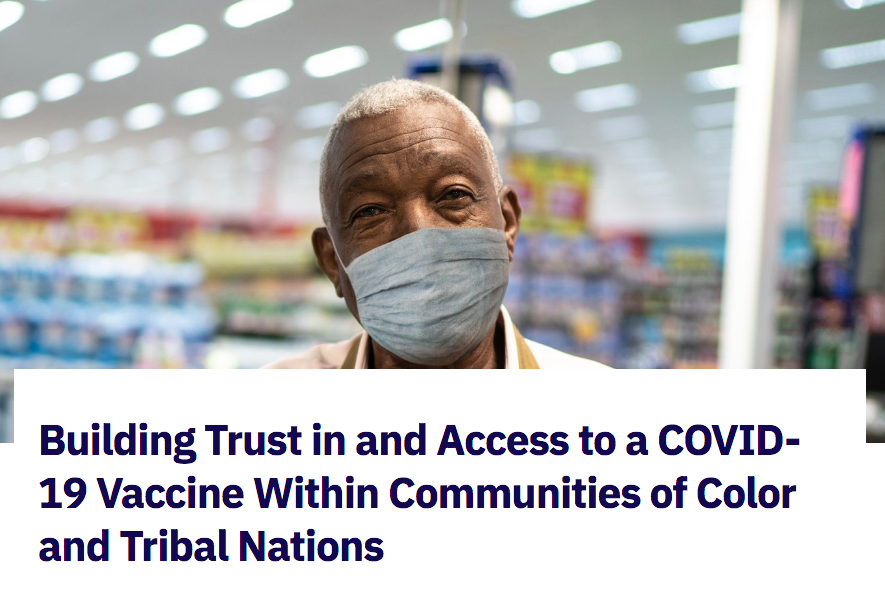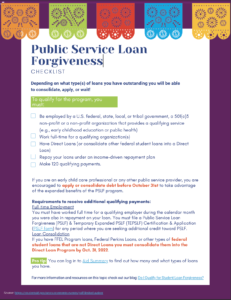
By Adrián Pedroza, National Director of Strategic Partnerships | Abriendo Puertas/Opening Doors
After enduring the mass spread of COVID-19 and consequential nation-wide lockdowns for the past year, the COVID-19 vaccine provides a beacon of light at the end of a dark tunnel. While states throughout the nation are urgently and strategically administering the vaccine at a rapid rate to control and prevent the spread of the virus, it is important to note that communities of color, and particularly the Latino community, may have inequitable access and may be hesitant to receive the vaccine.
As we have acknowledged before, Latino communities have been disproportionately affected by the pandemic in part, because of systemic inequities that existed prior to the pandemic and that have been exacerbated by the public health crisis. In fact, CDC data reveals that there are 1.7x more cases, 4.1x more hospitalizations, and a 2.8x higher death rate of COVID-19 with Latino/Hispanic communities compared to white, non-Hispanic persons.
And in a study conducted by the COVID Collaborative, 55% of Black Americans and 73% of Latino Americans know someone diagnosed with COVID-19, and 48% of Black Americans and 52% of Latino Americans know someone who has been hospitalized or died due to COVID-19.
Why are health inequities so severe?
While it is sobering that communities of color are affected by and dying by COVID-19 at higher rates than white Americans, there are a number of historical factors that contribute to this high mortality rate.
- Unjust social, economic, and environmental conditions contribute to a higher prevalence of underlying health conditions in communities of color and tribal nations.
- Latino, Black and Native Americans are more likely to work in front-line healthcare, transportation, food service, and other essential jobs that increase exposure to the virus.
- Social factors such as homelessness, incarceration, food insecurity, immigration status, lack of sick leave and health benefits in communities of color widen health inequities even further.
Why do people of color lack confidence in the vaccine?
While the COVID-19 vaccine is a vital solution for combating the virus, people can be skeptical of its safety and efficacy. Here are a few reasons why:
- There is a history of medical maltreatment and a lack of access to equitable healthcare in Black, Native-American and Latino communities, so there is a strong level of mistrust in medical agencies and medical developments like the COVID-19 vaccine.
- People of color and tribal communities have experienced a long history of lack of access to healthcare or lack of culturally and linguistically appropriate care and providers.
- Some are skeptical of the short timeline of developing the vaccine.
- There is limited transparent information about how the vaccine was developed and how it functions in the body to fight the virus.
How can we build trust in the vaccine?
In order to reach the light at the end of the long, dark and devastating spread of COVID-19, we need to ensure that people trust in, and have access to the COVID-19 vaccine. Here are some of the strategies you can utilize to build trust among the Latino community:
- Leverage Latino trusted messengers to promote receiving the vaccine.
- Utilize messaging about how the vaccine helps the Latino community at large.
- Work with local government and health leaders to ensure that registering and receiving the vaccine is accessible and easy for all.
- Share transparent and factual information about how the vaccine was developed, how it operates in the body to fight the disease and the potential side effects of receiving it.

Resources for Families
Resources for building trust in the vaccine:
COVID-19 Vaccine: Helps protect you from getting COVID-19
Frequently asked questions about the COVID-19 Vaccine
Language to Improve Vaccine Acceptance
Johns Hopkins: Is the COVID-19 Vaccine Safe?
Mayo Clinic: COVID-19 vaccine myths debunked
CDC: Ensuring the Safety of COVID-19 Vaccines in the United States

Studies:
Addressing Hesitancy and Mistrust in Black and LatinX Communities
Spanish Resources:
Preguntas frecuentes sobre la vacunación contra el COVID-19
Lo que debes saber sobre la vacuna de la COVID-19
Mitos y datos acerca de las vacunas contra el COVID-19
Cómo será su cita de vacunación contra el COVID-19
Beneficios de vacunarse contra el COVID-19
Información sobre la vacuna contra el COVID-19 para grupos específicos
Vacuna contra el COVID-19: Ayuda a protegerlo de contraer COVID-19
Explicamos 8 mitos sobre la vacuna contra el COVID-19
Vacuna contra el COVID-19: Ayuda a protegerlo de contraer COVID-19







